The European Marine Observation and Data Network (EMODnet) and the EU’s Copernicus Marine Service provide much-needed open and free access to harmonised and standardised data sets and data products, information and knowledge to underpin evidence-based decision-making for the sustainable management and protection of the marine environment, operations at sea and weather and climate predictions and forecasts. With the launch of the European Digital Twin of the Ocean in 2022, and Horizon Europe project EDITO-infra is upgrading the marine data game by creating one of the most innovative data lakes in the marine data sector, integrating key service components of Copernicus Marine and EMODnet.
The European Marine Observation and Data Network (EMODnet)
emodnet.eu
The EMODnet web portal provides access to European marine data across seven discipline-based themes: bathymetry, geology, sea habitats, chemistry, biology, physics, human activities. For each of these themes, EMODnet has created a gateway to a range of data archives managed by local, national, regional and international organisations. Through these gateways, users have access to standardised observations, data quality indicators and processed data products, such as basin-scale maps. These data products are free to access and use.
The Copernicus Marine Service
copernicus.eu
Copernicus Marine Service provides oceanographic products and services for maritime safety, coastal and marine environment, climate and weather forecasting and marine resources users. The Copernicus Marine Service offers all users worldwide information on the physical and biogeochemical state of the global ocean and the six regional seas in Europe, freely and openly, simply and instantaneously. These digital data are scientifically qualified and regularly updated. Subscribers of the Copernicus Marine Service have access to a catalogue of ocean data and monitoring indicators that they can download from a web portal or via a Copernicus Data and Information Access Services (DIAS).
European Digital Twin of the Ocean public infrastructure (EDITO-infra)
edito-infra.eu
The European Commission has mandated the primary operators of Copernicus Marine and EMODnet (Mercator Ocean International and the Flanders Marine Institue (VLIZ), respectively) to collaboratively design the public core infrastructure for the European Digital Twin of the Ocean (EDITO-Infra). EDITO-Infra will serve as an EU public infrastructure enabling the creation and operation of a wealth of local digital twins and innovative applications, catering to a diverse range of users. As a core component of the infrastructure, EDITO-Infra is stepping up the marine data game by creating one of the most innovative data lakes in the marine data sector, integrating key service components of Copernicus Marine and EMODnet.





